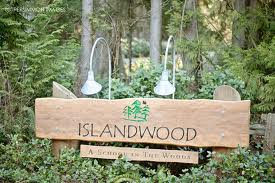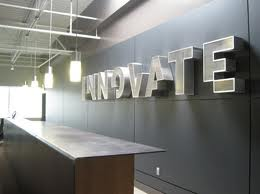GREEN BUILDER –
BUILDING COMMISSION
We
talked to an experienced green builder about “green house” construction and
remodeling. This builder was experienced in both commercial and residential. He
said commercial building was more based on return on investment than anything
else. The best way to achieve this is to build the building with this in
mind. Lower energy costs and incentives based on environmentally safe design
can all add to a higher ROI. Residential construction sells mainly on health,
safety, and comfort than anything else. The benefits of a sustainable design
are that health and safety are aligned with this purpose. Indoor air quality
adds to both the health and safety of the residents. A sustainable building
uses resources on a more efficient level and weather it is ROI or health that
is positively influenced the benefits generally out weight the costs.
PORTLAND DEVELOPMENT
COMMISSION
The
mission of the Portland Development Commission is to insure a diverse,
sustainable community with healthy neighborhoods, a vibrant central city, a
strong regional economy, and quality housing and jobs for all. This commission
was created to serve as an agency for Portland’s urban and economic
development. Keeping sustainability in mind with Portland’s development
maintains the triple bottom line; social, economic, and environment. The agency
is quasi-governmental working with the government on some projects and with the
private sector on others. They also work closely with Portland State University
and the local community college. Having
an agency that works with a broad range of sectors can benefit in them working
collectively together for the betterment of the city.
CASCADIA GREEN
BUILDING COUNCIL
The
Cascadia Green Building Council collaborates with organizations that have a
stake in the future of the regions that this council oversees. Having chapters
in Vancouver, Seattle, Portland, and in Alaska they cover a large section of
the Pacific Northwest. They are committed to the environment in these regions
by building a roadmap for sustainable buildings. They use their resources for
continuing education and a multitude of benefits for their members. They build
a network of leading organizations in sustainable development in their region
and support these organizations to work together to push the limits on green building
technologies.
 ECOTRUST
ECOTRUST
 Ecotrust
is a non-profit organization that believes “true wellbeing is possible” and
works to foster it. They strive to develop a model for this type of living.
They also believe that the current, 300 year-old, industrial economic model is
not the way to achieve this goal. They collaborate with private, public, and
non-profit organizations in order to identify innovation that can lead to
discovering this new model. My class and I were able to tour their facility.
The building was amazing and had a natural feel to it. The building is a source
of funding for Ecotrust. It houses businesses and non-profit organizations that
are agreeable to Ecotrust’s goals. In this way, Ecotrust can invest their
building space to organizations that help achieve their goals.
Ecotrust
is a non-profit organization that believes “true wellbeing is possible” and
works to foster it. They strive to develop a model for this type of living.
They also believe that the current, 300 year-old, industrial economic model is
not the way to achieve this goal. They collaborate with private, public, and
non-profit organizations in order to identify innovation that can lead to
discovering this new model. My class and I were able to tour their facility.
The building was amazing and had a natural feel to it. The building is a source
of funding for Ecotrust. It houses businesses and non-profit organizations that
are agreeable to Ecotrust’s goals. In this way, Ecotrust can invest their
building space to organizations that help achieve their goals.
DULL OLSON WEEKES
ARCHITECTS
Dull
Olson Weekes Architects (DOWA) is an architecture firm that is committed to
sustainability. On the tour we discussed sustainability in the learning
environment. We were shown a few school building projects. The schools were
designed with the kids as the main focus. The children were even used in the
design of the schools. A school building that was fun and sustainable. The
children composted, recycled, and even alerted the teacher when they could open
a window and turn of the lights in order to save energy. In order to realize a
building’s full potential in its energy and resource conservation, it must be
used right. DOWA kept this in mind by not only creating a sophisticated school,
but a type of “user manual” for the people occupying the building. This manual
guided them on how to use the school’s features and ensured that everyone who
was given the manual would be able to use the school’s features.
COHOUSING COMMUNITY
We
also visited a cohousing community in Portland. Cohousing is when a community
of residents chooses to live together and work closely with one another. Their
condos are linked together and they share a huge yard with a playground. There
are community meals and shared responsibilities. The community in this
cohousing facility is very close. The type of resident that would fit in this
type of living environment is a person who wants a strong sense of community.
The facility is designed for interaction. All of the condos have windows open
and the windows face on another and the park in the middle of the building.
This type of density would allow for more citizens to live together with less
space and less of an impact on the environment.
SOURCES:
 Washington Green Schools works with
schools to make them more sustainable. They are a non-profit organization that
is supported by government agencies, individuals, businesses and foundations.
The schools they work with choose a category and the organization helps them
improve upon this category. Once the category that was chosen has been improved
upon, the organization then asks the school to try the other categories. They
also collect and organize the qualitative and quantitative data in order to compare the data gathered between school. Working with
schools is a way for the organization to teach the kids about sustainability
and hopefully those kids will be able to use this information at home.
Washington Green Schools works with
schools to make them more sustainable. They are a non-profit organization that
is supported by government agencies, individuals, businesses and foundations.
The schools they work with choose a category and the organization helps them
improve upon this category. Once the category that was chosen has been improved
upon, the organization then asks the school to try the other categories. They
also collect and organize the qualitative and quantitative data in order to compare the data gathered between school. Working with
schools is a way for the organization to teach the kids about sustainability
and hopefully those kids will be able to use this information at home. Network for Business Innovation and
Sustainability believes that business is how to influence sustainability on a mass
level. The organization is a business friendly portal to help businesses become
more sustainable. Their method is to appeal to capitalists by focusing on how
sustainability can be profitable. They are also working with a company to
design an information system that can help with GRI reporting.
Network for Business Innovation and
Sustainability believes that business is how to influence sustainability on a mass
level. The organization is a business friendly portal to help businesses become
more sustainable. Their method is to appeal to capitalists by focusing on how
sustainability can be profitable. They are also working with a company to
design an information system that can help with GRI reporting. 











